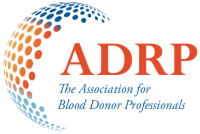Ensuring a Safe and Sufficient Global Blood Supply
A safe and sustainable blood supply remains elusive for many low- and middle-income countries (LMICs). The World Health Organization (WHO) considers blood and blood components to be essential medicines, which underscores their importance to health systems. Essential medicines are products that are deemed to be necessary to meet the health care needs of the majority of the population and therefore must be in adequate supply, accessible, and affordable, with their quality assured. Yet nearly two thirds of countries — including countries in central, eastern, and western sub-Saharan Africa, Oceania, and South Asia — lack sufficient blood to meet clinical demand.
September 26, 2024
Related Resources
Engaging blood donors as advocates Social media preferences and associations with marketing
Background: Various critical medical procedures would become impossible without blood donations—saving lives in emergencies, surgeries, and chronic conditions like thalassemia. Therefore, it seems crucial to enhance donor recruitment and ensure…
Rethinking the role of older donors in a sustainable blood supply
INTRODUCTION Many countries, particularly high human development index countries, are facing the challenge of an aging population.1 For Blood Collection Agencies (BCAs) in these countries, an aging population poses two…


